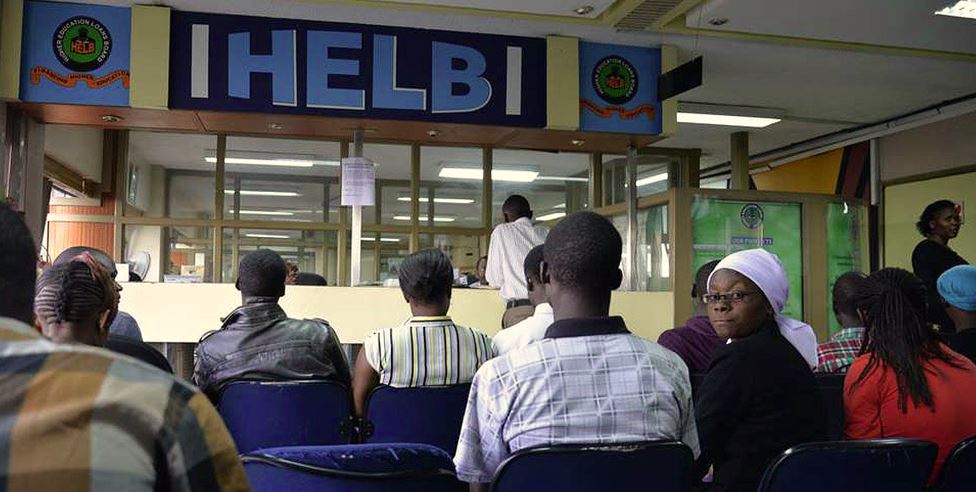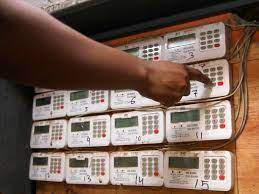HELB: Former students owe Sh32 billion in unpaid loans, 64,000 blacklisted

Currently, at least 708,000 students are enrolled in Kenyan universities, and over 100,000 graduated this year.
The Higher Education Loans Board (HELB) has blacklisted more than 64,000 former students who have failed to repay government-issued loans, cutting them off from accessing credit facilities such as personal loans, mortgages, and other financial services.
HELB CEO Geoffrey Monari said that about 300,000 former students currently owe a total of Sh32 billion in unpaid loans, raising concerns about the sustainability of the student loan program.
More To Read
- Government commits Sh27 billion to upgrade TVET institutions nationwide
- HELB loan defaults hit Sh42 billion as number of defaulters surges by 40 per cent
- KEPSA calls on Parliament to enact reforms to stabilise public universities after 49-day lecturers’ strike
- Tertiary students ineligible for NYOTA programme, PS Susan Mang’eni clarifies
- New Bill proposes Sh5 million fine for false wealth declarations in State appointments
- Senators demand reopening of HELB portal to allow more students to apply
“Last year alone, we collected Sh5.2 billion, which supported 50,000 university students and 114,000 students in technical and vocational training institutions,” Monari said as reported by Daily Nation.
Over the past 30 years, HELB has disbursed Sh195 billion in loans, enabling students to pay for tuition, meals, and books. The model works as a revolving fund, where repayments from previous beneficiaries are used to support new students.
Currently, at least 708,000 students are enrolled in Kenyan universities, and over 100,000 graduated this year.
Monari noted that without consistent repayments, the scheme faces serious financial pressure. Employers are legally required to report employed graduates within 30 days and start deductions for remittance to HELB, but compliance has been uneven.
To address rising defaults, HELB has put in place a multi-layered strategy. One measure is the establishment of a self-protection fund, which sets aside 0.037 percent of each loan to cover beneficiaries who die before completing repayment.
So far, approximately 2,000 loans have been left unpaid due to deaths.
“We have also intensified inspections of employers to ensure they are remitting deductions. This year alone, we carried out 236 inspections and billed 28,000 past students who had not started paying,” said Monari.
Defaulters are pursued through guarantors and debt collectors, with long-term defaulters, some dating back 20 years, being among the first to face CRB blacklisting.
Monari acknowledged that not all defaulters are unwilling to pay.
“If someone is surviving on Sh5,000 a month in a casual job, it is unfair to expect consistent loan repayment. But we are encouraging even small, regular contributions to keep their accounts active,” he said.
Unemployed graduates face even greater challenges, often trapped in a cycle of job hunting while repayment obligations remain.
HELB is also advocating for legal reforms to improve compliance. Proposed amendments include freezing accounts of graduates who can pay but refuse, and penalties for employers who deduct repayments but fail to remit them. Currently, employers owe Sh34 million in unremitted deductions, which HELB is pursuing with the Attorney-General’s office.
The board has also intensified efforts to recover loans from Kenyans living abroad, working with the Ministry of Foreign and Diaspora Affairs. Collections from diaspora graduates brought in Sh100 million last year, with Sh20 million recovered in the current financial year.
“It’s a promising stream, and we want more Kenyans abroad to honour their obligations,” Monari said.
To encourage repayment, HELB occasionally runs penalty waiver campaigns, allowing defaulters to settle principal loans without the burden of accumulated fines. “Waivers are a carrot, while blacklisting is the stick,” Monari said.
He emphasized the long-term consequences: “For many students from low-income backgrounds, the loans are the only bridge to higher education. Without repayment, the bridge weakens for the next generation.”
The blacklisting initiative marks a decisive step by HELB to secure its finances, protect future students, and ensure that the country’s higher education funding remains viable.
Top Stories Today












































